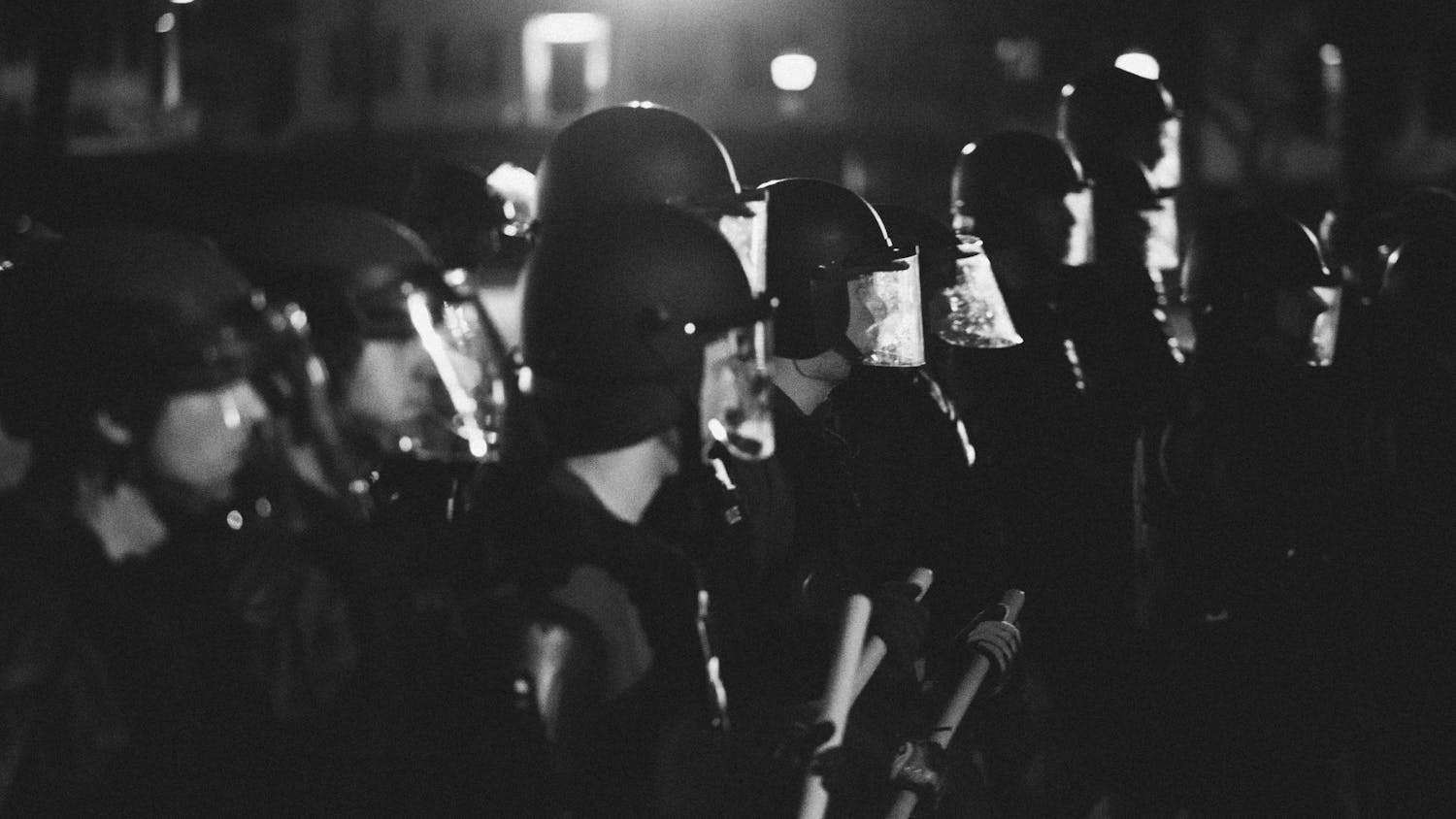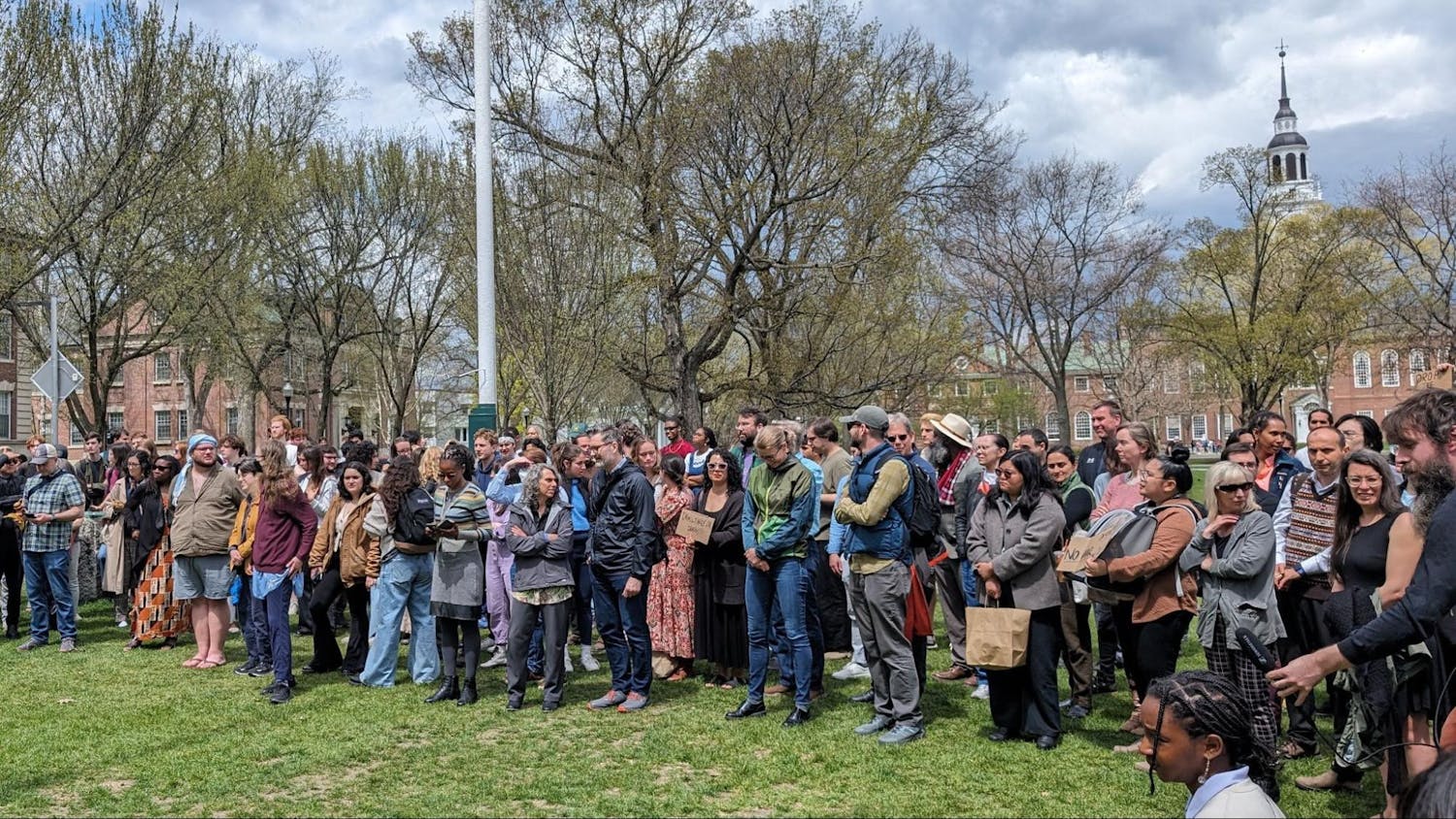With all the handiness that the Internet ushered in, educators worried that one convenience in particular could prove detrimental -- the easy accessibility of term papers on such web sites as BigNerds.com and EssayCity.com. But according to professors here at Dartmouth, students handing in such term papers almost always fail to impress.
Many instructors said that because of the specificity of their assignments, it would prove nearly impossible for students to find an appropriate paper online.
"The writing is fully integrated into the material," English professor Alexandra Halasz said. Our assignments "are shaped in ways that don't allow general responses. Most essays that you get off the Internet are general."
Professors also noted that plagiarism would not work in many classes, simply because they knew the level at which the students had previously been working.
"Generally I have my students turn in writing throughout the term ... which would give me a sense if the student is writing at this level," English Professor Brenda Silver said. "In the one plagiarism case I had, the writing was not at all the same as the previous paper; the sentences were not what this particular student would have written on his own."
Religion Professor Darryl Caterine cited an instance of plagiarism in one of his classes. The paper "was too good -- I don't think I could have written it. There was a huge discrepancy between [the student's] work and the paper. I knew she hadn't written it."
Government Professor Shelley Deane remembered an instance of plagiarism in which "one chap took everything from the Encyclopadia Britannica." Deane noted that while the writing was effective, she thought she recognized it. After finding the matching entry in the encyclopedia, "I talked to him about it, and he sort of failed. He thought I wouldn't notice ... he didn't understand why it was unethical."
Other papers straight off the Internet come with a plethora of errors that would merit a bad grade anyway, even if they weren't caught as being plagiarized, some professors said.
After looking at one of these papers [chosen at random and presented to him by The Dartmouth], Caterine said, "It's too subjective. It's too fluffy, very shallow ... it's heavy on reaction, but intellectually insubstantial."
Halasz' reaction to another example provided to her by The Dartmouth showed even more contempt for the quality of many of the term papers posted on web sites.
"These are terrible," she said. "This is a generic paper."
Deane agreed, laughing at a paper on abortion printed off the Internet. She noted that in the introduction, the paper didn't state a question that it would address, had bad citations, and had a bad use of vocabulary.
"Even if I didn't know it was a copy, I would give it a bad grade," she said. As she read through the plagiarized paper, Deane commented, "oh, dear, this is fierce ... terrible ... good lord ... this is hideous."
Once she had finished reading the paper, Deane concluded that it had been cut and pasted from various sources, didn't provide a coherent argument and would not be acceptable in any course.
"This essay would be crashing and burning," she said. "It tries to do everything and does nothing."
Professor Bill Roebuck also read a paper printed from an Internet essay site and was not impressed. Since the paper addressed a general topic, and Roebuck assigns more specific topics, Roebuck "would have given it a D," he said.
Aside from the fact that the paper didn't address a narrow topic, "I would not have picked this up as plagiarism," Roebuck said. "It read well and yet not 'too well.'"
Although a few of the professors said they had caught students using completely plagiarized papers, Halasz cited a different type of plagiarism.
"I have had students turn in work that I had them rewrite because they were depending too heavily on their sources. They weren't thinking," she said. "I don't think there has been a case of someone 'passing off' plagiarized work as their own."
Deane noted that plagiarism nearly always fails, but gave students a tip. "If you are going to plagiarize, at least do it well ... if you take this paper from the Internet, you deserve to fail."



